The Real Economic Challenge Facing Donald Trump
Money is not a client of any investment adviser featured on this page. The information provided on this page is for educational purposes only and is not intended as investment advice. Money does not offer advisory services.
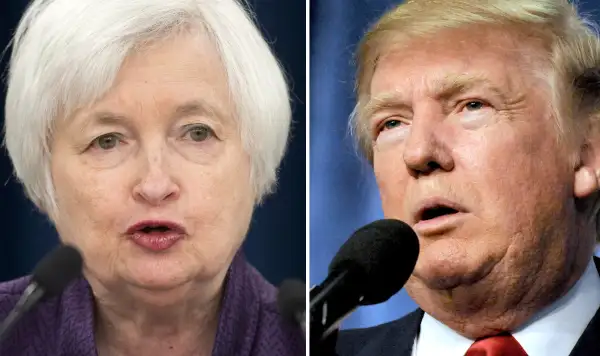
President-elect Donald Trump turned in perhaps the most surprising presidential upset since Truman beat Dewey—and the financial markets are going wild.
Much of the commentary and analysis that follows Trump's astounding victory will focus on the 800-point decline in futures trading, bond yields dropping to 1.72%, and gold's 4% increase in the hours after polls closed Tuesday night. The scene was reminiscent of the goings-on following Britain's unexpected vote this summer to leave the European Union, and China's poor economic reports to start the year. The smart money believes he'll be bad for business.
“The markets are reacting this way not only because Trump is perceived to be wanting to stir up the status quo, but also because he has some controversial protectionist policies that could impede sustainable global economic growth," says Nigel Green, founder and CEO of deVere Group.
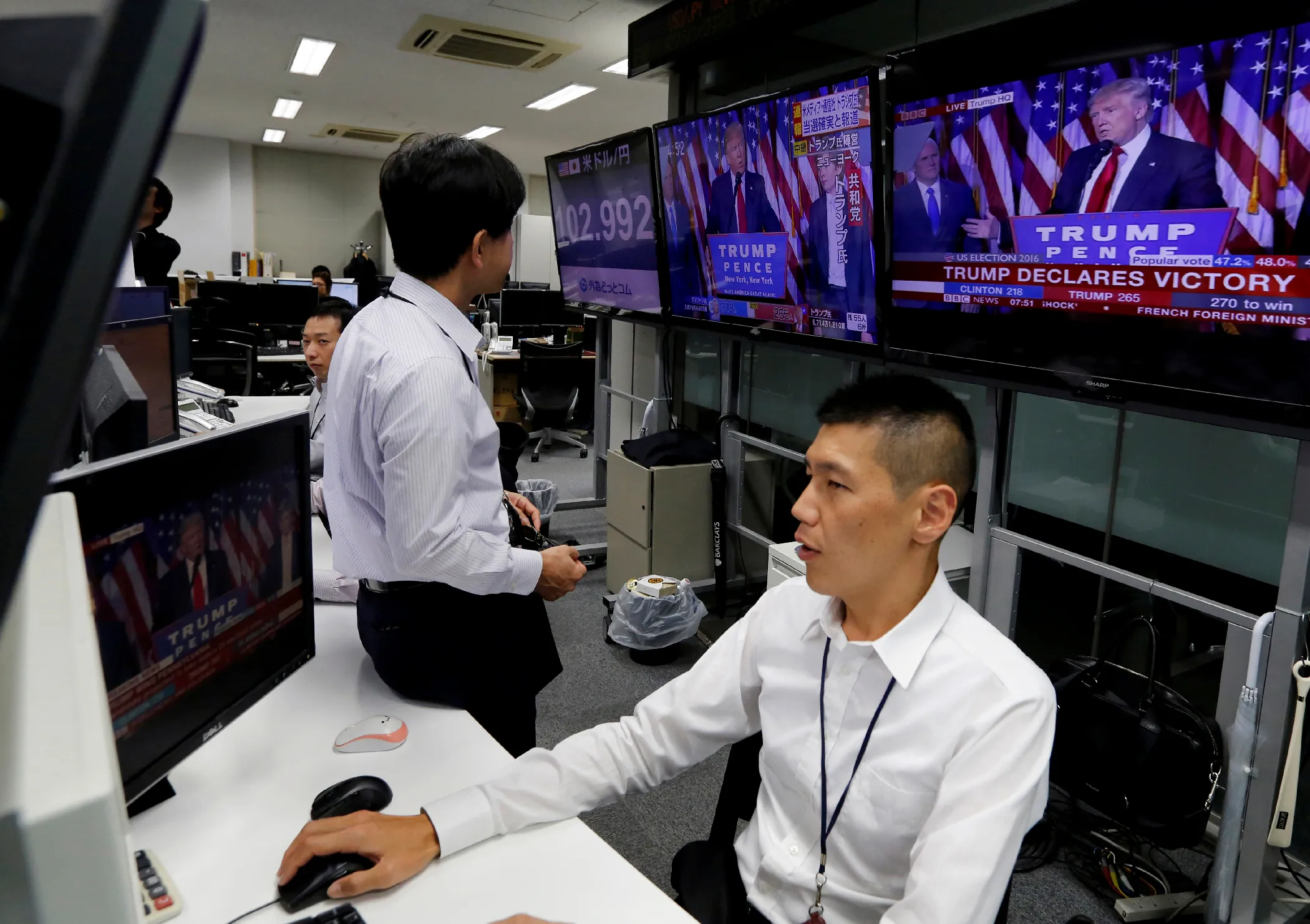
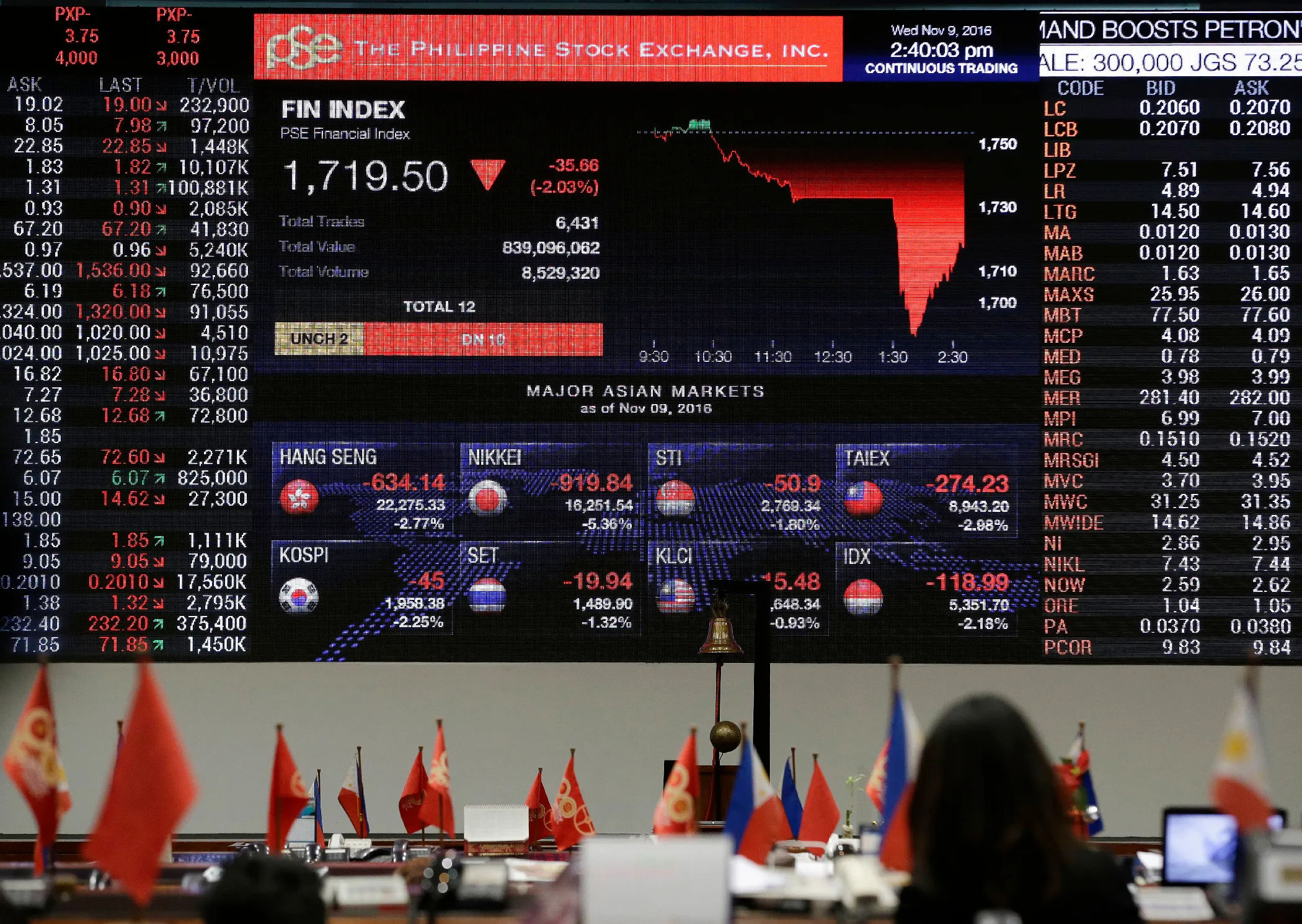
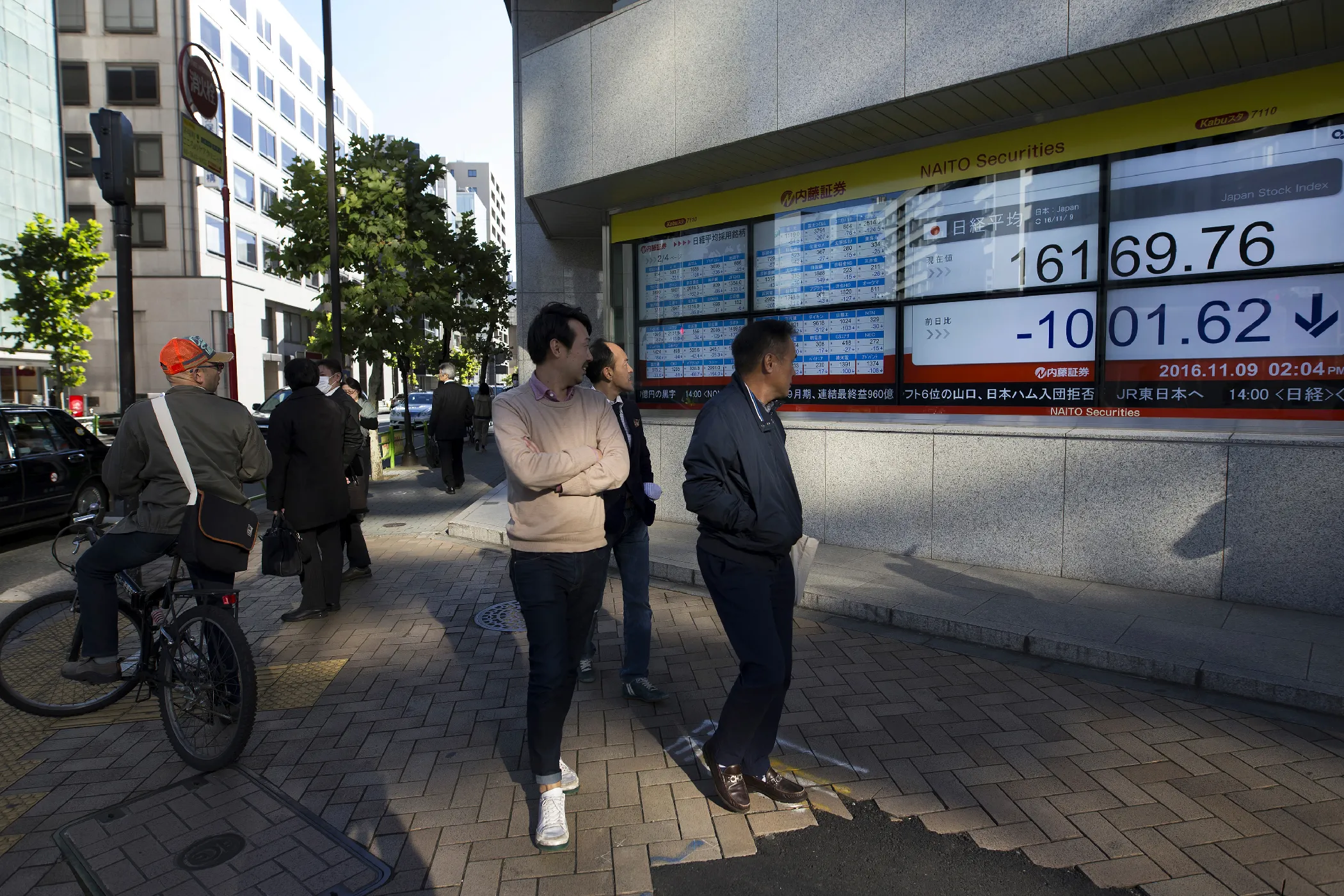
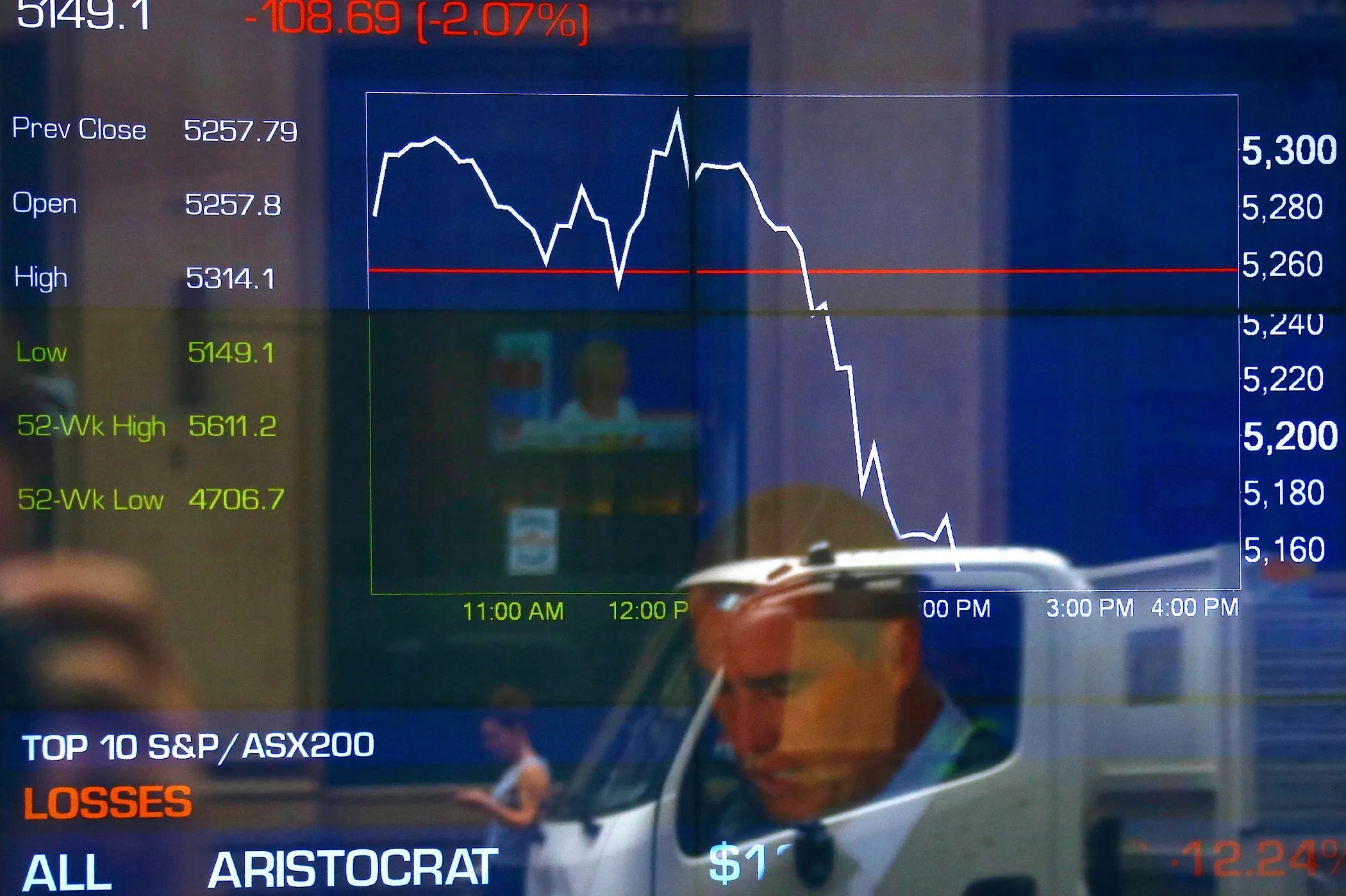
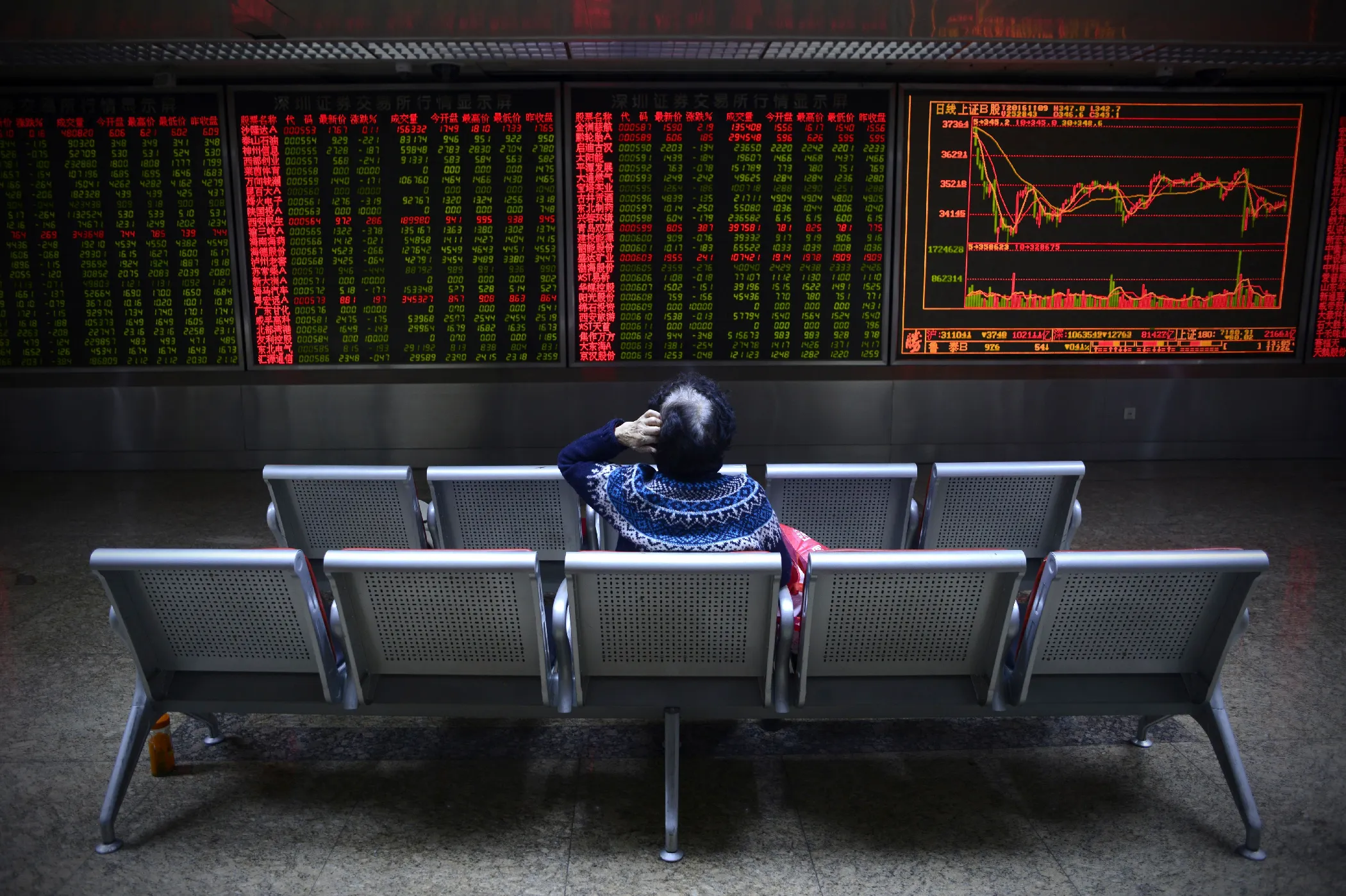
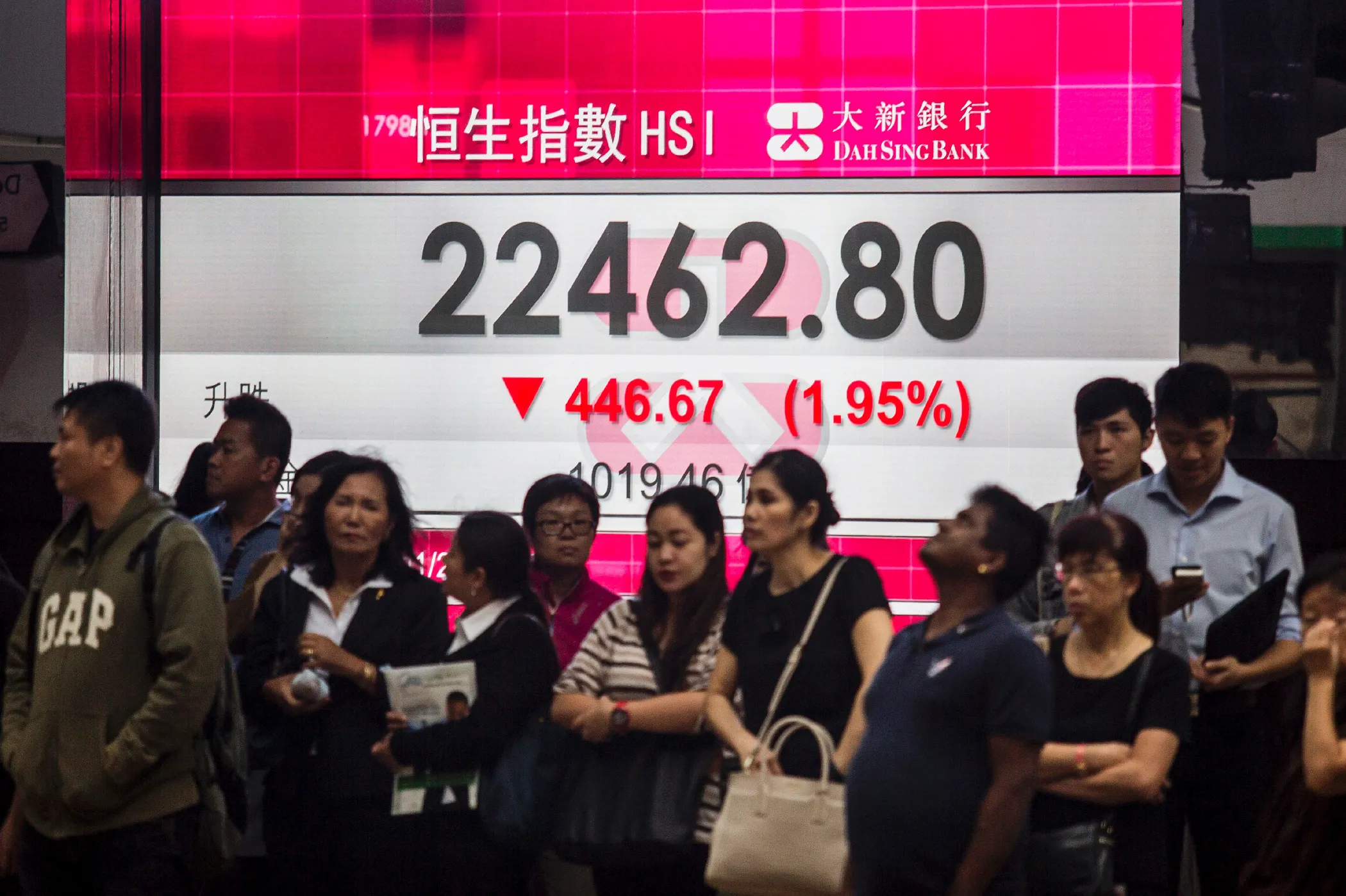

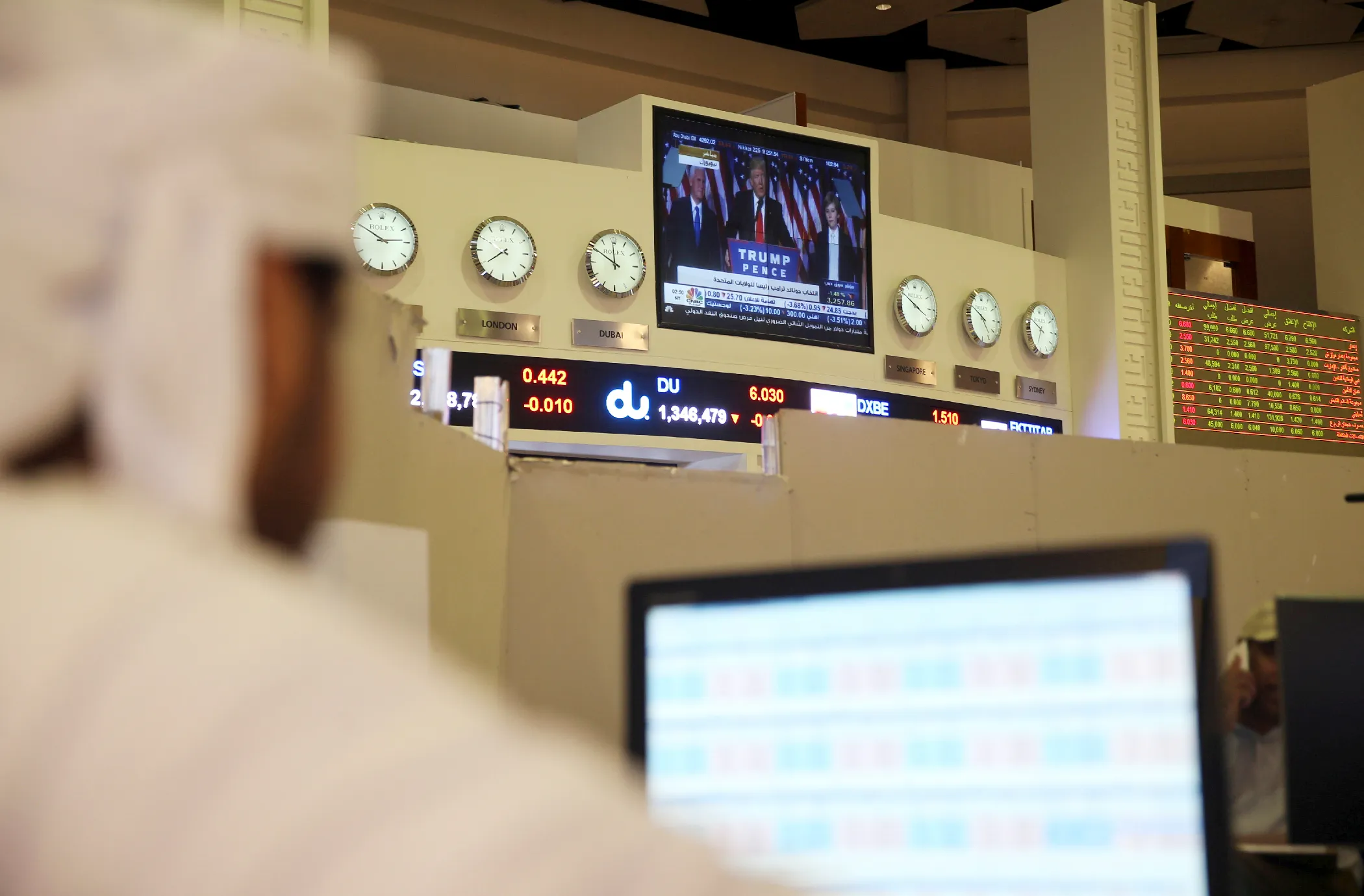
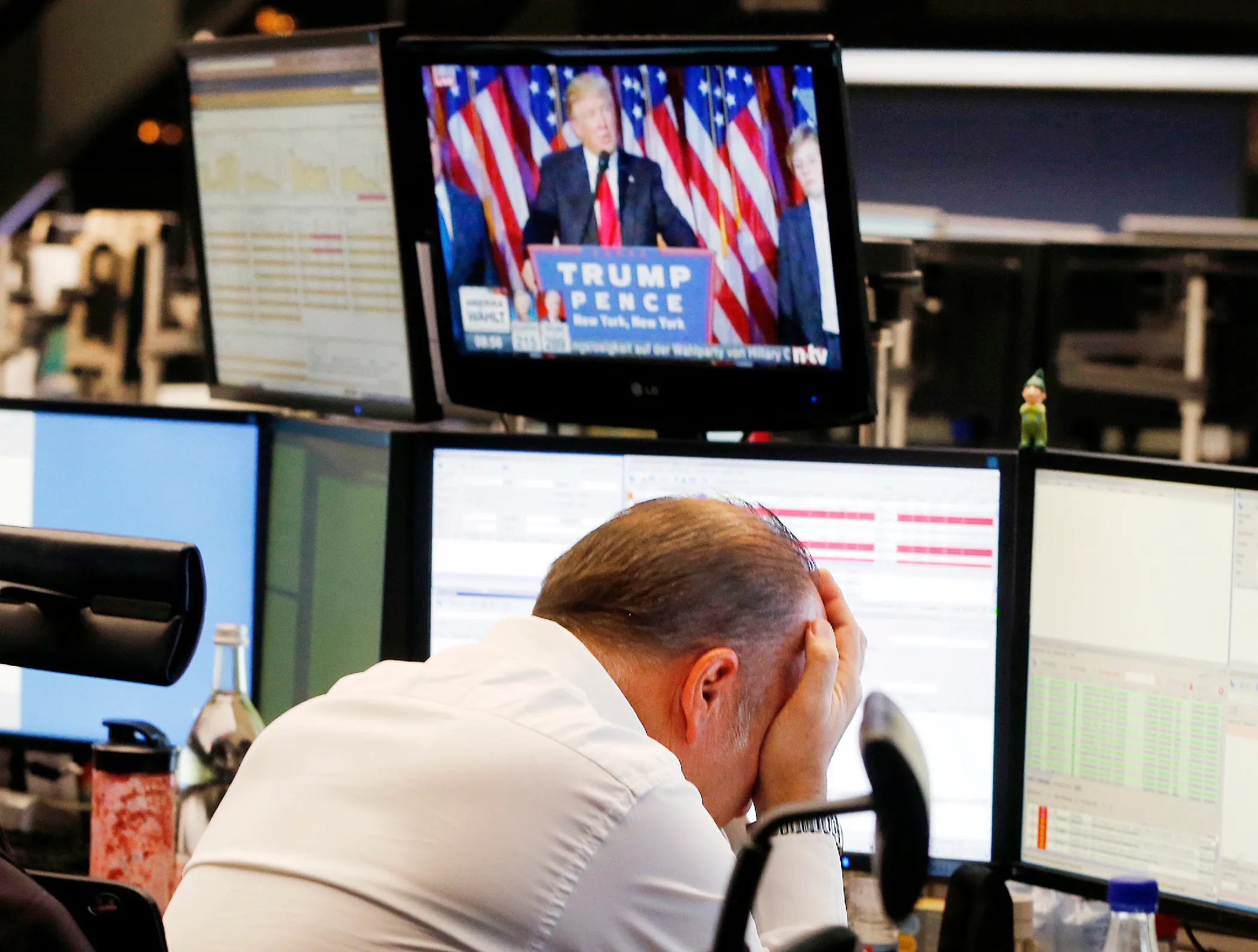
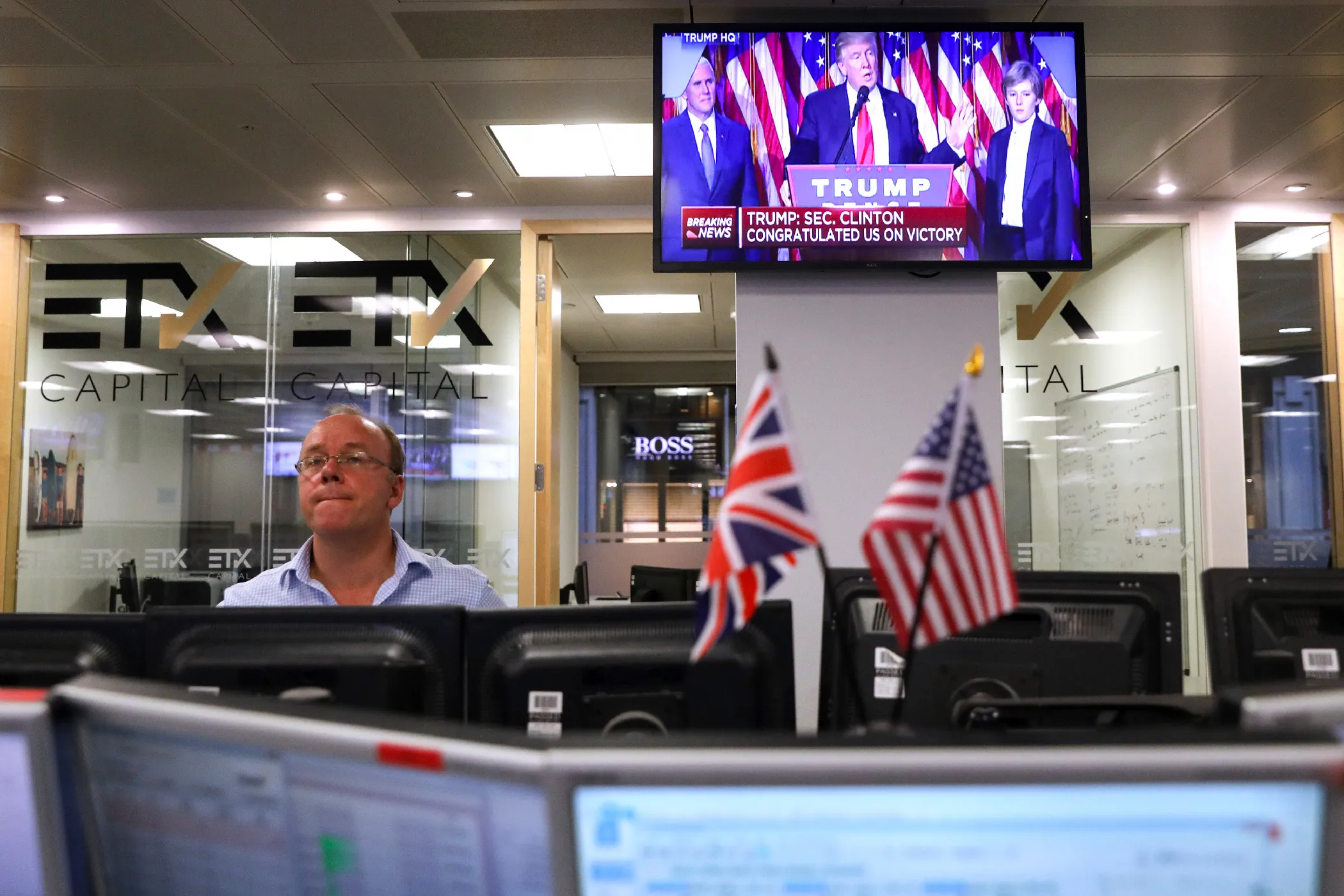
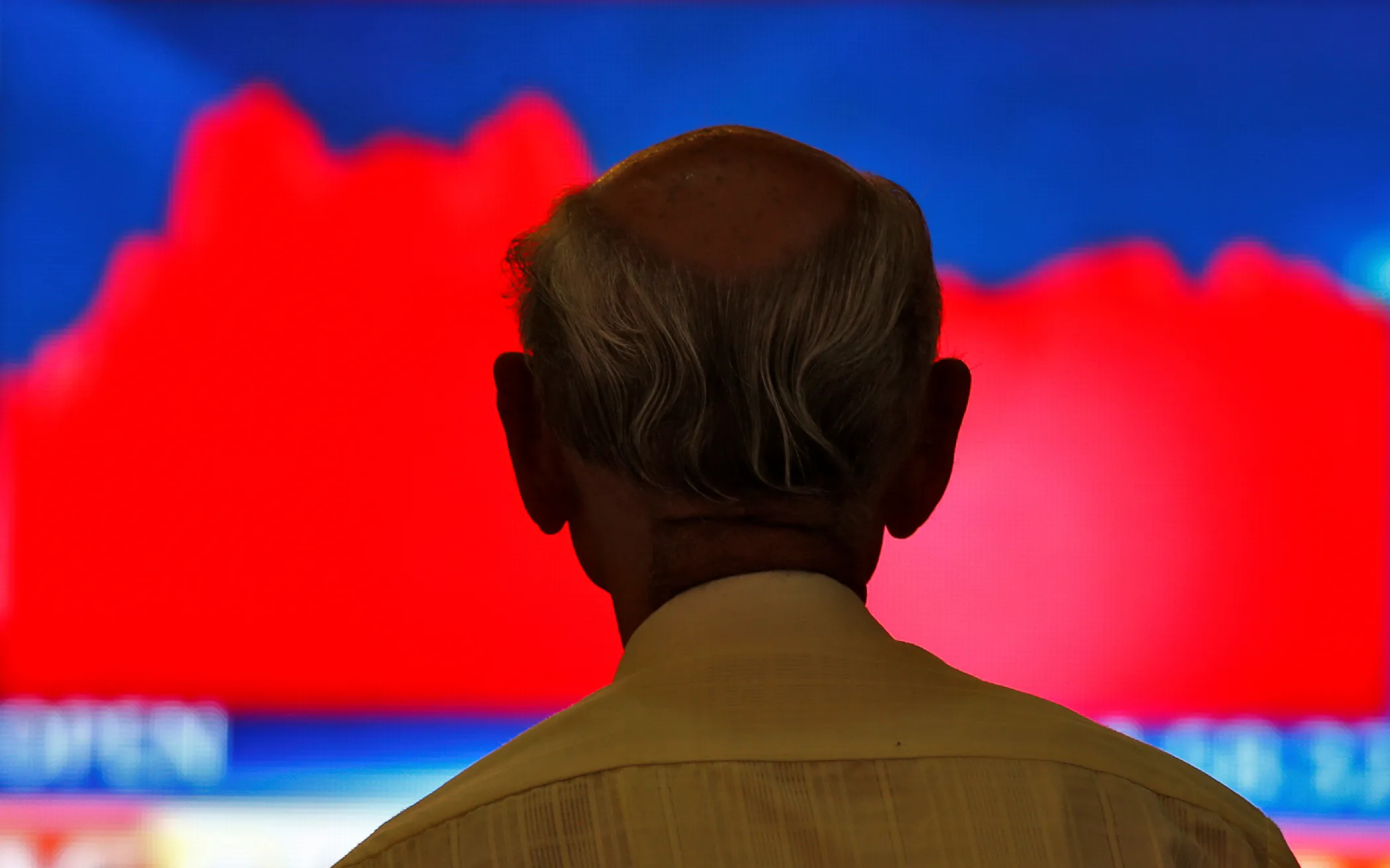
Trump, though, is a long way from erecting a Mexican-paid wall, tearing up free-trade agreements like NAFTA, or imposing his economic agenda, which includes unprecedented tax cuts, especially for the nation's most well-off. So the effects of his policies, one way or another, are still yet to be seen or tallied.
You'd do well to ignore the terrible financial news blaring on the television screen today. Stocks did endure their worst start to the year ever in 2016 thanks to poor growth in China and low oil prices, and crumbled again after the "Brexit" vote. But then they bounced back. So far this year (before Wednesday's returns), the S&P 500 has gained nearly 6%. If you sold on the dips, you missed out on the rebound.
Donald Trump's biggest concern, then, shouldn't be fickle markets reacting to unexpected events, but rather long-term economic trends that will likely blight his four-year term and challenge his ability to deliver real change to the types of voters that sent him to the White House.
Recession
In the 150 years following the Civil War, the average economic expansion lasted a little more than three years. In the post-World War II era, it's been about five years. We're now 90 months, or seven and a half years, into the current upturn. That means that Trump will likely face a recession sometime during his term.
And how will he confront that downturn? Congress will be held by Republicans but led in part by House Speaker and fiscal conservative Paul Ryan, who generally opposes federal spending. Will the new president be able to convince Congressional leaders to act in response to negative economic growth?
Another concern rests with the Federal Reserve. Trump, who has claimed—falsely—that Fed Chair Janet Yellen kept short-term borrowing rates at historic lows to help Democrats retain power, might look to the central bank to help lift the economy out of a ditch. The Fed, before Trump's election, was expected to raise interest rates slightly next month.
But borrowing rates are just a hair above zero, which means that Yellen and Co. will have little room to stimulate the economy should they need to. And given the Fed's $4 trillion balance sheet, there may be little appetite for unconventional bond-buying programs, such as quantitative easing.
President Obama was elected in the midst of the worst financial crisis since the Great Depression, and the economy spent the next eight years slowly recovering. Trump, on the other hand, may have to address an economic reversal.
How he responds, as joblessness rises and wages stagnate or decline, will likely determine whether he's elected for a second time.
